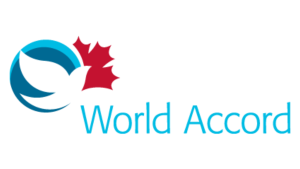Women for Peace and Democracy (WPD) – Nepal
Women for Peace and Democracy (WDP)
Rights and Economic Development for Nepal's Empowered Women (RENEW)
Funded in large part by Global Affairs Canada, RENEW (Rights and Economic Development for Nepal’s Empowered Women) is a new project for World Accord and Women for Peace and Democracy. It also includes four other Nepali organizations (Indrabhumi Saving and Credit Co-operative (IBSCC), Rural Self-reliance Development Centre (RSDC), School of Environmental Science and Management (SchEMS), and the Informal Sector Service Center (INSEC) and the private sector contribution from the Egg Farmers of Ontario to strengthen poultry and egg-producing operations of women and women’s groups in the program. It is a full gender equality integrated four-year project in Makwanpur and Nuwakot districts of Nepal, with a total budget of 1.475 million dollars.
“Women belong in all places where decisions are being made. It shouldn’t be that women are the exception.”
– Ruth Bader
Nepal’s adult literacy rate is around 55%, and 40% of the country’s income comes from agriculture. Nepal is one of the countries most intensely affected by climate change and glacier melts. Nepalese society is still healing and in transition following a 10-year civil war that destroyed infrastructure & caused deep social rifts.
Nepal has a population of 31 million. About half of them live below the international poverty line ($1.25/day). Along with Afghanistan, Nepal is the poorest country in South Asia. Its GDP per capita places Nepal 209th in the world. The country has an unemployment rate of 25% of employment leading to high pressure to migrate.
Support the Program
Seventy-five percent of program participants are involved in subsistence agriculture (paddy and vegetable farming; raising small animals). About ¾ of participants lack enough food for up to 6 months of the year. The nature of the terrain (soil fertility, slopes, etc.), availability of water, and farming techniques used are the major constraints responsible for low productivity. In most of these cases, off-season vegetable farming has the potential to provide a more reliable diet and income. This is a focus of training. High levels of illiteracy (92% for women, 65% for men) persist.
Most participants in WPD programming are born into lower caste or ethnic minority groups and experience systemic discrimination that limits their access to education and economic opportunities.
Socio-Economic Empowerment Program for Women & Marginalized Populations (SEWAM)
The SEWAM program supports agricultural production and micro-enterprise-based income generation through rural groups. Since the start of the project, WPD-Nepal has provided training in income generation, micro-credit, and support to strengthen Mutual Development Organizations. These local groups serve as sources for rotating credit, mutual support, and collective action for income generation and community development. They also coordinate advocacy with local governments and other service providers through which groups can also access land and services.
Nepal
